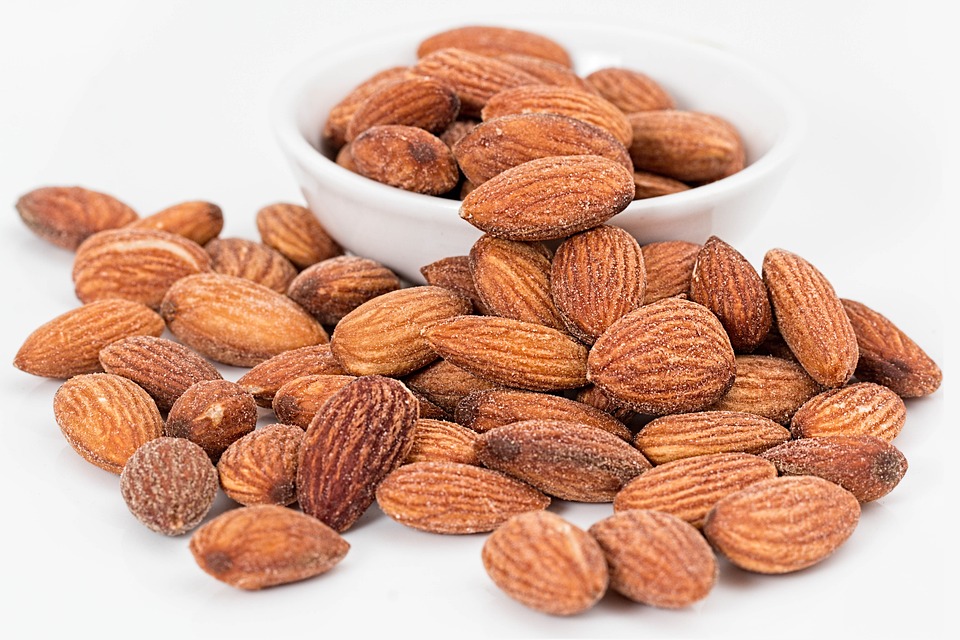Symptoms of gastric bypass: Understanding the Impact on Your Body
Gastric bypass surgery is a life-changing procedure that can have a profound impact on an individual’s health and well-being. While this surgery can offer significant weight loss benefits, it also comes with a set of symptoms that patients need to be aware of. In this article, we will explore the various symptoms that can arise after gastric bypass surgery and provide insights on how to manage them effectively.
1. Dumping Syndrome: The Unpleasant Aftermath
Dumping syndrome is a common yet distressing symptom experienced by many gastric bypass patients. This condition occurs when food moves too quickly from the stomach to the small intestine. The rapid influx of undigested food causes a range of uncomfortable symptoms such as nausea, vomiting, diarrhea, bloating, and abdominal cramps. Some individuals may also experience dizziness, fatigue, and a rapid heartbeat.
To manage dumping syndrome, it is crucial to eat small, frequent meals and avoid consuming high-sugar or high-fat foods. By adopting a balanced diet that includes lean proteins, fiber-rich fruits and vegetables, and complex carbohydrates, patients can minimize the occurrence of dumping syndrome and maintain stable blood sugar levels.
2. Nutritional Deficiencies: The Importance of Supplements
Following gastric bypass surgery, patients may experience nutritional deficiencies due to the reduced absorption of essential vitamins and minerals. Common deficiencies include iron, calcium, vitamin D, vitamin B12, and folate. These deficiencies can lead to fatigue, weakness, hair loss, brittle nails, anemia, and bone density issues.
To prevent nutritional deficiencies, it is crucial to work closely with a healthcare professional to develop a personalized supplementation plan. Regular blood tests can help identify any deficiencies and guide the appropriate dosage of supplements. Adhering to this plan will ensure that the body receives the necessary nutrients for optimal health and well-being.
3. Gastrointestinal Issues: Adjusting to the New Normal
Gastric bypass surgery alters the digestive system, leading to changes in bowel habits and digestion. Some patients may experience constipation, while others may suffer from diarrhea or excessive gas. These gastrointestinal issues can be disruptive and uncomfortable, affecting one’s daily life.
To manage gastrointestinal issues, it is important to maintain a diet high in fiber and stay hydrated. Regular exercise can also help regulate bowel movements and improve overall digestion. In some cases, medication or probiotics may be prescribed to alleviate specific symptoms. Open communication with healthcare providers is essential to finding the Most effective solutions for individual cases.
4. Psychological Effects: The Emotional Rollercoaster
Gastric bypass surgery not only affects the physical aspects of a person’s life but also has profound psychological effects. Many patients experience a wide range of emotions, including excitement, anxiety, frustration, and even depression. Adjusting to the new eating habits, body image changes, and the potential for social challenges can be overwhelming.
To navigate these emotional challenges, it is crucial to seek support from friends, family, and professionals. Joining support groups or attending counseling sessions can provide a safe space to share experiences, gain insights, and develop coping strategies. Embracing a positive mindset and celebrating non-scale victories can also contribute to a healthier mental well-being.
5. Skin and Hair Changes: The External Manifestation
weight loss after gastric bypass surgery can lead to changes in the skin and hair. Some patients may experience excess skin, especially in areas where fat was previously concentrated. This excess skin can cause discomfort and self-consciousness. Hair loss, often temporary, is another common symptom that may occur due to nutritional deficiencies.
While excess skin may require surgical intervention, adopting a healthy lifestyle that includes regular exercise and maintaining a stable weight can help improve skin elasticity. For temporary hair loss, ensuring adequate protein intake and taking recommended supplements can support hair regrowth.
In conclusion, gastric bypass surgery is a transformative procedure that offers substantial health benefits. However, it is important to understand and manage the potential symptoms that may arise after the surgery. By being aware of dumping syndrome, nutritional deficiencies, gastrointestinal issues, psychological effects, and skin and hair changes, patients can take the necessary steps to mitigate these symptoms and enhance their overall well-being. Remember, proper communication with healthcare professionals and a supportive network are vital throughout this journey.
Most Asked Questions Regarding Symptoms Of Gastric Bypass
What are the common symptoms of gastric bypass?
The common symptoms experienced after gastric bypass surgery can vary from person to person. However, there are several typical symptoms that many individuals may encounter during the recovery process.
1. Nausea and vomiting: It is common to experience nausea and occasional vomiting after gastric bypass surgery. This is primarily due to the changes in the size of the stomach and the rearrangement of the digestive system. Patients are advised to follow their healthcare provider’s instructions regarding dietary guidelines and eating habits to minimize these symptoms.
Key information:
– Nausea and vomiting are common symptoms post gastric bypass surgery.
– These symptoms are primarily caused by changes in the stomach’s size and digestive system.
– Following dietary guidelines can help alleviate these symptoms.
2. Dumping syndrome: Dumping syndrome is another common symptom experienced after gastric bypass surgery. It occurs when food moves too quickly from the stomach into the small intestine, causing various symptoms such as abdominal cramps, diarrhea, lightheadedness, and sweating. This condition can be managed by eating smaller, frequent meals and avoiding certain trigger foods high in sugar or fat.
Key information:
– Dumping syndrome is a common symptom after gastric bypass surgery.
– It occurs when food moves rapidly from the stomach to the small intestine.
– Managing dumping syndrome involves eating smaller, frequent meals and avoiding trigger foods.
3. Changes in bowel movements: Gastric bypass surgery can lead to changes in bowel movements, including diarrhea or constipation. These changes are often temporary and can be managed by following a balanced diet, staying hydrated, and incorporating fiber-rich foods into the diet. It is important to discuss any persistent bowel movement changes with a healthcare provider.
Key information:
– Changes in bowel movements are common after gastric bypass surgery.
– These changes can include diarrhea or constipation.
– Managing bowel movement changes involves a balanced diet, hydration, and fiber intake.
4. Abdominal discomfort: Some individuals may experience abdominal discomfort or pain following gastric bypass surgery. This can be due to the healing process, changes in the digestive system, or the presence of gas. It is essential to follow post-operative instructions provided by the healthcare provider, including medication management and physical activity restrictions, to aid in the healing process and alleviate abdominal discomfort.
Key information:
– Abdominal discomfort is a potential symptom after gastric bypass surgery.
– The causes can include the healing process, changes in the digestive system, or gas.
– Following post-operative instructions can help alleviate abdominal discomfort.
5. Vitamin and mineral deficiencies: Gastric bypass surgery can impact the body’s ability to absorb certain vitamins and minerals. Deficiencies in essential nutrients such as iron, vitamin B12, calcium, and vitamin D are common. Regular monitoring of nutrient levels and appropriate supplementation, as prescribed by a healthcare provider, can help prevent and manage deficiencies.
Key information:
– Gastric bypass surgery can lead to deficiencies in vitamins and minerals.
– Common deficiencies include iron, vitamin B12, calcium, and vitamin D.
– Regular monitoring and supplementation are necessary to prevent and manage deficiencies.
Overall, it is important to note that individual experiences may vary, and it is crucial to consult with a healthcare provider for personalized advice and guidance regarding symptoms and their management after gastric bypass surgery.
Common Assumptions Regarding Symptoms Of Gastric Bypass
1. Gastric bypass cures all symptoms of obesity
Contrary to popular belief, gastric bypass surgery is not a magical cure for all the symptoms associated with obesity. While it can help individuals lose a significant amount of weight, it does not guarantee the elimination of all symptoms. The surgery primarily focuses on reducing the size of the stomach, which restricts the amount of food that can be consumed. However, other obesity-related symptoms such as joint pain, sleep apnea, and hormonal imbalances may persist even after the surgery.
2. Gastric bypass surgery eliminates the need for a healthy lifestyle
Another common Misconception is that gastric bypass surgery allows individuals to abandon a healthy lifestyle and still maintain weight loss. This is far from the truth. While the surgery can provide a jumpstart to weight loss, it is crucial to adopt and maintain a healthy lifestyle to achieve long-term success. This includes regular exercise, a balanced diet, and ongoing support from healthcare professionals. Without these lifestyle changes, individuals may regain weight and experience a decline in overall health.
3. Gastric bypass surgery leads to immediate and permanent weight loss
Many people believe that gastric bypass surgery guarantees immediate and permanent weight loss. However, this is not entirely accurate. While weight loss is expected after the surgery, it is a gradual process that requires time and commitment. The initial weight loss is often more rapid during the first few months post-surgery, but it tends to slow down over time. Additionally, maintaining the weight loss requires ongoing lifestyle changes and healthy habits to prevent weight regain.
4. Gastric bypass surgery eliminates the risk of obesity-related health conditions
While gastric bypass surgery can significantly reduce the risk of developing certain obesity-related health conditions, it does not eliminate the risk entirely. Conditions such as type 2 diabetes, high blood pressure, and high cholesterol may improve or even resolve after surgery, but there is still a possibility of recurrence if the individual does not adhere to a healthy lifestyle. It is essential to continue regular check-ups and monitoring to ensure overall health and well-being.
5. Gastric bypass surgery is an easy way out
One of the most prevalent misconceptions about gastric bypass surgery is that it is an easy way out of obesity. However, this is far from the truth. The decision to undergo surgery requires careful consideration, extensive preparation, and a significant commitment to long-term lifestyle changes. The surgery itself is a major procedure that carries risks and potential complications. Moreover, the recovery period can be challenging, and individuals need to make significant adjustments to their eating habits and overall lifestyle. It is essential to view gastric bypass surgery as a tool, rather than an easy solution, in the journey towards better health.
Symptoms Of Gastric Bypass
#symptoms #gastric #bypass #surgery #vary #depending #individual #specific #procedure #performed #common #symptoms #includebr

